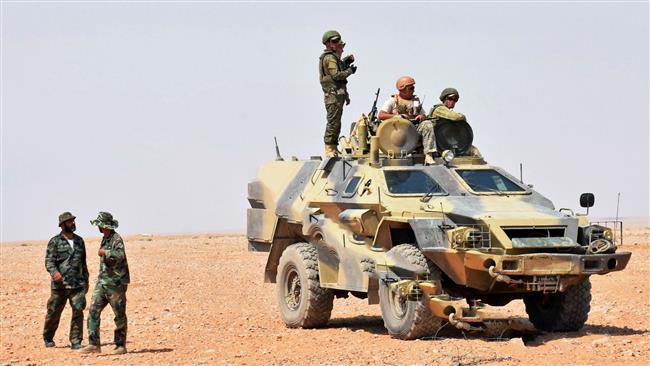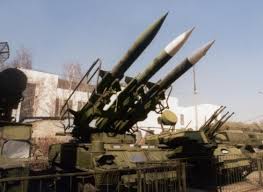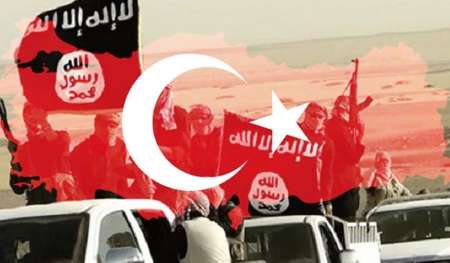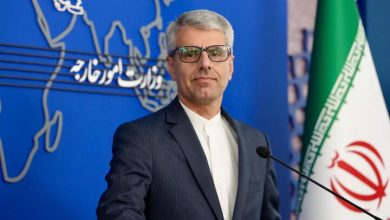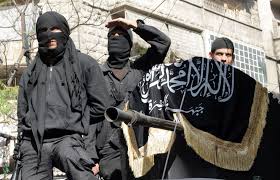Assad Rules Out Dialogue between Syria, Terrorist Groups
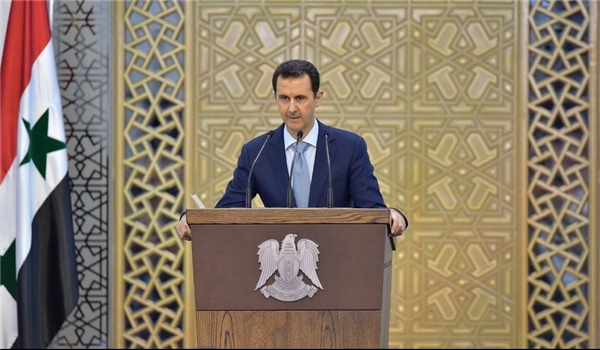
There can be no dialogue between the Syrian government and terrorist groups like ISIL and the Nusra Front, they have to be eradicated, Syrian President Bashar Assad said.
The Syrian government is battling against many extremist groups, including ISIL and the Nusra Front. The Syrian leader stressed in an interview with Russian media the country’s authorities engage in dialogue with any party if that dialogue leads to degrading terrorism and consequently achieving stability, RIA Novosti reported.
“So we talk to everyone except organizations I mentioned like ISIS (ISIL), al-Nusra, and other similar ones for the simple reason that these organizations base their doctrine on terrorism,” Assad said.
“Their doctrine is based on terrorism, and consequently dialogue with such organizations cannot lead to any real result. We should fight and eradicate them completely and talking to them is absolutely futile.”
Nationals of Over 90 States Fight alongside Extremists in Syria
ISIL has been highly successful in spreading their ideology through social media and has attracted thousands of foreigners, particularly young people, to join the terrorist group.
According to the International Centre for the Study of Radicalization, ISIL has recruited more than 20,000 foreign fighters.
“We have terrorist fighters from over 80 or 90 countries today, so our enemy is enjoying enormous support in various countries, from where people come here to fight alongside the terrorists,” Assad said in an interview.
Western Support of Extremist Groups in Syria is a Reality
Syria is aware of the fact that the West provides support to extremist groups operating in the country, such as ISIL and the Nusra Front, President Bashar Assad said.
“But as for western cooperation with the al-Nusra Front, this is reality, because we know that Turkey supports al-Nusra and ISIS (ISIL) by providing them with arms, money and terrorist volunteers,” Assad said in an interview.
The Syrian leader stated that Turkey has close relations with the West, and its leadership could not make any decisions without consulting the United States and other western countries.
“Al-Nusra and ISIS (ISIL) operate with such a force in the region under western cover, because western states have always believed that terrorism is a card they can pull from their pocket and use from time to time,” he added.
Damascus has repeatedly accused Ankara of providing support to extremist groups operating in Syria. In April, Syrian Foreign Ministry accused Turkey of providing direct logistical and military support to terrorist organizations, while Saudi Arabia and Qatar were accused of facilitating the infiltration of foreign militants into the country.
Kurdish Autonomy Could Be Discussed Only After Victory over Terrorism
“After we defeat ISIS (ISIL), al-Nusra, and the terrorists, the Kurdish demands expressed by certain Kurdish parties can be discussed nationally,” Assad said in an interview.
“There’s no problem with that, we do not have a veto on any demand as long as it is within the framework of Syria’s unity and the unity of the Syrian people and territory, fighting terrorism, Syrian diversity, and the freedom of this diversity in its ethnic, national, sectarian, and religious sense,” he added.
Syrian Parties Must Continue Political Dialogue While Fighting Terrorism
The Syrian leader noted the progress the representatives of the country’s government and opposition made during the second round of intra-Syrian talks in Moscow, saying it was only “a partial step, it’s not a full step, and that’s natural because it’s a big crisis.”
“I think we need to continue the dialogue between the Syrian entities, political entities or political currents, in parallel with fighting terrorism in order to achieve or reach a consensus about the future of Syria,” Assad said in an interview with Russian media.
There Are No Iranian Troops Fighting in Syria
Last week, Israeli security officials claimed that Iran had deployed hundreds of fighters in Syria.
“Iran supports Syria and the Syrian people. It stands with the Syrian state politically, economically and militarily. When we say militarily, it doesn’t mean — as claimed by some in the western media — that Iran has sent an army or armed forces to Syria. That is not true,” Assad said in an interview.
“It sends us military equipment, and of course there is an exchange of military experts between Syria and Iran,” he added.
Syria has been grappling with a deadly crisis since March 2011. The violence fuelled by Takfiri groups has so far claimed the lives of over 240,000 people, according to reports. Moscow and Geneva have each hosted two rounds of talks between the Syrian government and the opposition.
Between January 26 to 29, Moscow held the first Syrian peace talks. During the second round of Moscow talks, held in April, the conflicting sides agreed on an agenda defining a negotiating framework to end the war in the country.
The previous round of Syrian reconciliation talks was held in Kazakhstan’s Astana in late May. At the end of the talks, most of participants signed off on a final document calling for the withdrawal of all foreign mercenaries from the war-torn country and stressing the need to form a unified front to counter terrorism.
In July, Moscow expressed its willingness to host the third round of intra-Syrian peace talks. The date of the new round of consultations has not been determined yet.
